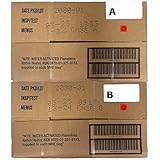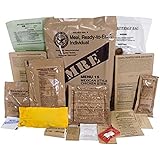Preparation and Planning
Assessing Your Needs
When it comes to anticipating a disaster, I’ve learned the hard way that preparation is key. I like to start by assessing my specific health needs—what medications do I use daily? Are they easily portable? Writing this down has been super helpful for me, especially since I don’t want to scramble at the last minute.
Next, I consider how long I might be without access to my regular medical care. Depending on your illness, that could range from a day to much longer. Understanding this helps me pack the right supplies and determine how much I need to stockpile.
Additionally, I always reach out to my healthcare team to check on what I might need in an emergency kit. They often have insights into what supplies or medications are crucial when things get hectic.
Gathering Supplies
Once I’ve assessed my needs, it’s time to gather supplies. It’s not just about medications—think about your everyday essentials. I store a week’s worth of meds, water, non-perishable food, and any special equipment I rely on, like my nebulizer or mobility aids.
I also find that keeping a well-stocked first-aid kit tailored to my specific chronic illness makes a huge difference. For example, if I have asthma, I keep extra inhalers and a spacer handy. Having these resources at the ready eases a ton of stress.
Don’t underestimate the power of localized products too. Depending on where you live, you might need items like sunscreen or bug spray if you’re in an area prone to those kinds of disasters. A quick inventory check every few months helps me avoid last-minute panics.
Creating a Communication Plan
Having a solid communication plan is crucial during a crisis. I make sure that family and friends know how to reach me and what to do if things go south. This can include creating a group chat or a designated meeting spot if things get really chaotic.
I also keep a copy of important documents handy, such as my medical history, insurance information, and a list of allergies. This way, anyone who’s trying to help me has all the info at their fingertips. It can be a daunting task, but the peace of mind it brings is totally worth it.
== > What if ... Get a FREE Subscription to PREPARE
Sometimes, I even jot down a list of emergency contacts outside my immediate circle. You just never know who might be best placed to help you in a pinch!
Maintaining Medication Management
Keeping Track of Medications
Managing medications during a disaster is a juggling act I’ve had to navigate more than once. I keep an updated list of all my prescriptions and dosages in a waterproof bag. This helps avoid any mix-ups, especially during the chaos of an emergency.
I also set reminders on my phone for when I need to take my medication. If the power goes out, a simple backup plan like a written schedule can save the day and ensure I don’t miss doses.
Additionally, I store my medications according to how they’ve been prescribed—this minimizes the possibility of a mix-up, even when I’m stressed out. It’s a small effort that keeps things organized when life gets wild.
Understanding Dosage Adjustments
In emergencies, I always touch base with my doctor or pharmacist about possible dosage adjustments. Some medications might need to be skipped or taken in different amounts based on availability. If you’re in this position, don’t hesitate to ask for guidance—your health is not something to mess with.
Keeping an open line of communication with healthcare professionals also means I can discuss alternative treatments or substitutions I can use if my regular meds aren’t available.
I’ve learned that having a backup plan gives me so much confidence. It’s like having an ace up my sleeve, and it really calms my nerves in stressful situations.
Stockpiling Essential Medications
One of the most valuable lessons I’ve learned is to have a slight stockpile of essential medications. I aim to have at least a 30-day supply if possible, factoring in unforeseen circumstances that might keep me from getting to the pharmacy.
Bear in mind the expiration dates! I regularly rotate my stock to keep the meds fresh and effective. It’s a small yet crucial task that pays off when emergencies arise.
And let’s not forget—check with your doctor for emergency refills. Some physicians will allow you to refill a bit earlier if a storm is coming or if a disaster is imminent. It can save you lots of headaches down the line.
Utilizing Community Resources
Researching Local Support Services
I’ve found that tapping into local resources makes a world of difference during a crisis. Before anything happens, I do my research. I look into local shelters and support groups that assist those with chronic illnesses. Knowing where to go and who to talk to can be a lifesaver.
Many communities have organizations specifically designed to help vulnerable populations during disasters. I always try to familiarize myself with their phone numbers and locations.
Connecting with these services ahead of time means I can rely on them for assistance, whether that’s finding transportation, food supplies, or any medical help I might need in an emergency.
Connecting with Others Facing Similar Challenges
Community isn’t just about resources; it’s about people too! Connecting with others who face similar challenges can provide a network of support. During disasters, I often turn to online forums or local groups to share tips and resources.
Sometimes sharing experiences can lead to finding creative solutions that I hadn’t considered. Plus, it’s simply nice to know I’m not alone in this.
Whether it’s through social media, local meet-ups, or well-known advocacy organizations, reaching out creates a sense of togetherness that can make difficult times feel a little lighter.
Volunteering for Community Preparedness Initiatives
One way I give back is by volunteering for local community preparedness initiatives. This not only helps me stay informed but also strengthens my connection to my community.
Get Preparedness and Self-Reliance Tips. Subscribe Now!
By being actively involved, I learn about local emergency procedures and resources available to those in need. Plus, it amplifies the impact we can have on one another when things get tough.
And who knows? Maybe I’ll end up making some lifelong friends along the way—all while preparing for a smoother ride in case of an emergency!
Implementing Coping Strategies
Maintaining Mental Health During Crises
Let’s be real—disasters can take a toll on our mental health. I always prioritize keeping a routine that includes self-care. Even simple things like meditation, journaling, or reading can work wonders.
Staying connected with loved ones also helps me to maintain a sense of normalcy. I make a point to check in and share how I’m feeling during tough times. It’s comforting to know I have a whole crew rooting for me.
Another trick? I practice breathing exercises whenever my anxiety spikes. All it takes is a few deep breaths to help calm my racing thoughts.
Engaging in Physical Activity
Staying physically active might feel challenging when a disaster strikes, but I’ve found ways to incorporate movement into my day, even if it’s just a short walk around the block.
Movement releases endorphins, which is honestly a fantastic way to boost my mood. Whether it’s yoga, walking, or even a little dancing in my living room, I find that staying active helps mitigate stress.
Plus, creating consistent habits around physical activity can help keep my body functioning well despite the surrounding chaos. It’s a win-win situation!
Practicing Flexibility and Adaptability
The reality is that not everything will go according to plan during a disaster. I’ve adapted by practicing flexibility and going with the flow, even when it feels uncomfortable. Learning to pivot when things don’t go as expected is a huge skill I’ve developed.
Whenever plans need to change, I remind myself that it’s okay. I’ve become skilled at thinking outside the box and finding alternatives to stick to my routine.
Allowing myself room for imperfections lifts a massive weight off my shoulders. It’s all about taking things one day at a time and trusting that I can handle whatever comes my way.
Seeking Professional Help When Necessary
Finding the Right Health Care Providers
Building a solid relationship with health care providers has been essential during emergencies. I don’t hesitate to reach out for help, whether it’s for medication adjustments or tackling my mental health. Having a go-to provider means I always know who to call in a crunch.
It’s essential to look for doctors who specifically understand chronic illnesses and how they interact with situations like disasters. I’ve been blessed to find healthcare pros who are not just knowledgeable but genuinely care.
Don’t forget your rights as a patient! I advocate for myself by asking questions and seeking clarity about my treatment. Taking charge of my health has empowered me in all sorts of ways.
Utilizing Telehealth Services
During a disaster, access to in-person appointments can be tricky. That’s why I always keep a list of telehealth services handy. They allow me to consult with my health care provider without leaving the safety of my home, which is a game changer.
I find that a quick video or phone call can provide reassurance and necessary adjustments to my care plan. It keeps me connected even when emergencies disrupt the regular flow of life.
Telehealth has opened the door for timely interventions, and it’s worth looking into what services are available in your area.
Participating in Support Groups
Sometimes, I just need to talk it out with others who get it. Support groups have been a lifesaver. They provide a safe space to share experiences and advice, especially during tough times.
During disasters, these groups can also offer invaluable information about coping strategies, community resources, and local support systems that I may not have known existed. It’s comforting to connect with others who have similar experiences.
Whether online or in person, participating in a support group can feel like having a safety net. And I can always count on them to cheer me on through my ups and downs.
Frequently Asked Questions
1. What should I do first to prepare for a disaster if I have a chronic illness?
Start by assessing your needs. Make a list of medications, equipment, and supplies you’ll need. Then, gather everything into an emergency kit that you can easily access in case of an emergency.
2. How can I maintain my medication schedule during a disaster?
Keep a written schedule of your medications and set reminders on your phone. It might also help to have a waterproof list of prescriptions handy for reference in a pinch.
3. What community resources can help during a disaster?
Research local support services like shelters, food banks, or organizations that specifically assist individuals with chronic illnesses. Connecting with these resources can provide necessary assistance during tough times.
4. How can I support my mental health during a disaster?
Focus on maintaining a routine that includes self-care activities. Staying connected with loved ones, exercising, and engaging in mental wellness practices can help reduce anxiety and provide comfort.
5. Why is it important to have a support group?
Support groups offer a safe space to share experiences, gather information, and build connections with others facing similar challenges. They can provide valuable resources and emotional support during crises.
Get Preparedness and Self-Reliance Tips. Subscribe Now!
Related Content
Meals Ready to Eat A and B bundle cases 2025, 2026 inspection. Genuine Military US surplus emergency food bulk supply full box with heater
$81.95 (as of March 1, 2026 11:55 GMT -05:00 - More infoProduct prices and availability are accurate as of the date/time indicated and are subject to change. Any price and availability information displayed on [relevant Amazon Site(s), as applicable] at the time of purchase will apply to the purchase of this product.)Flood Hero 3 ft Water Activated Sandbags - 2 Pack Flood Bag Barriers for Home
$17.99 (as of March 1, 2026 11:55 GMT -05:00 - More infoProduct prices and availability are accurate as of the date/time indicated and are subject to change. Any price and availability information displayed on [relevant Amazon Site(s), as applicable] at the time of purchase will apply to the purchase of this product.)Country Fresh Instant Nonfat Dry Milk Powder, 39 Servings, 20 Year Shelf Life, Gluten Free - Canned Vitamin-Fortified Nonfat Milk Powder for Baking and Emergency Food Supplies
$13.00 (as of March 1, 2026 11:55 GMT -05:00 - More infoProduct prices and availability are accurate as of the date/time indicated and are subject to change. Any price and availability information displayed on [relevant Amazon Site(s), as applicable] at the time of purchase will apply to the purchase of this product.)Hitituto Rain Ponchos Family Pack Kids– 6/12/24 Pack Disposable Poncho with Hood, Clear & Assorted Colors, Home Survival Kits
$9.99 (as of March 1, 2026 11:55 GMT -05:00 - More infoProduct prices and availability are accurate as of the date/time indicated and are subject to change. Any price and availability information displayed on [relevant Amazon Site(s), as applicable] at the time of purchase will apply to the purchase of this product.)MRE Meals Ready to Eat, Emergency Food Supply, Survival Camping Outdoor 12 Pack Inspection 2025, 2026 (1 Meal (Random), 1 Count)
Now retrieving the price.
(as of March 1, 2026 11:55 GMT -05:00 - More infoProduct prices and availability are accurate as of the date/time indicated and are subject to change. Any price and availability information displayed on [relevant Amazon Site(s), as applicable] at the time of purchase will apply to the purchase of this product.)





